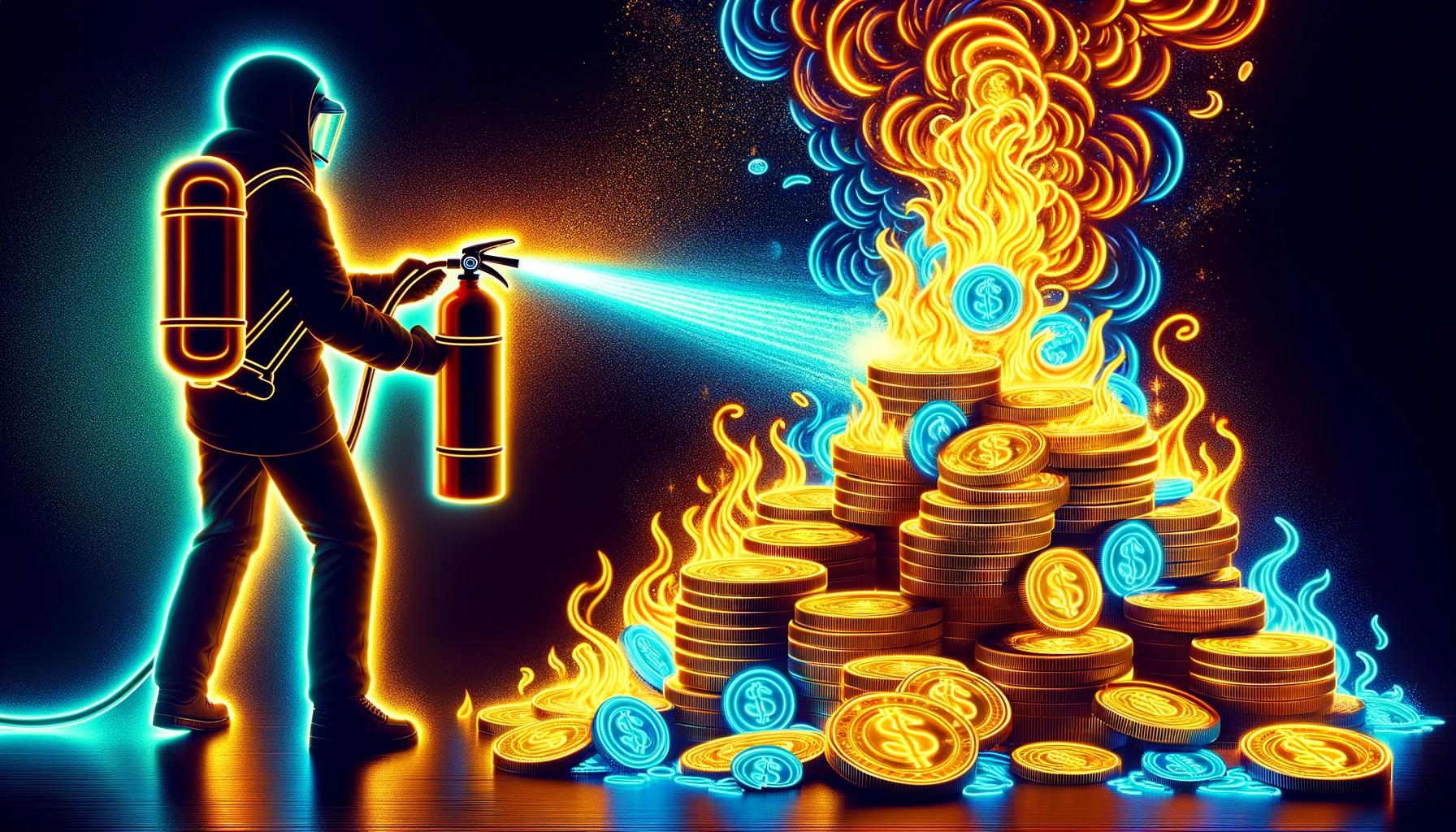
Proponents argued Solana’s old priority fee system was inefficient.
Solana validators are set to enjoy a bump in earnings following the passage of a new governance proposal.
On May 27, the Solana community approved proposal SIMD-0096 to allocate 100% of priority fees to network validators and abandon the network’s token burning mechanism. The proposal passed with a strong majority of 77% votes cast in favor.
Priority fees on Solana are optional fees that users pay on top of base transaction fees to ensure that their transactions are prioritized ahead of the standard transaction queue. At present, priority fees are equally divided between rewards for validators and a token-burning mechanism intended to control SOL inflation — which stands at 1.5% annually.
However, SIMD-0096’s implementation won’t be activated for several months.
Efficiency vs inflation
The proposal to divert all priority fees to validators stemmed from concerns that the previous system may encourage side deals between network users and block producers, undermining network integrity.
“For example, consider a scenario where a transaction submitter wishes to prioritize their transaction,” the proposal said. “Under the existing model, they might opt to directly pay the block producer a 75% priority fee to ensure their transaction is processed promptly, rather than paying a 100% priority fee where the block producer only receives 50%.”
The proposal garnered mixed responses from prominent validators. Everstake, Jito, and Solend believe the proposal better aligns incentives and improves network efficiency, while Step Finance, Triton, and Solana Compass oppose the change.
Hanko Baggins from Bandito Stake warned that eliminating the burn mechanism could lead to excessive SOL inflation. “While our bags would significantly benefit from the increased fees, I am not comfortable with removing the burn mechanism,” Baggins said.
“Validators are leaning towards being greedy, which isn’t great news for retail investors,” added X user, dmoutouss.
Anatoly Yakovenko, Solana co-founder, expressed support for the proposal, emphasizing the inefficiencies of the current system’s Jito tips — which are the share of priority fees paid to validators to prioritize transactions.
Yakovenko said that the current system requires users to pay double the priority fee when competing to provide Jito tips due to the network’s burn mechanism. He described the priority fee burn as a bug in the system, arguing that it forces users to overpay and benefits validators disproportionately.
As such, Yakovenko characterized Solana’s current Jito tips mechanism as creating inefficiencies for users.
“Users currently have to pay 2x higher priority fees to outbid Jito tips,” said Yakovenko. “Jito tips aren’t burned so validators get 100% of the tip. To be included in the block, a user has to pay 2x priority. It’s just busted.”
Solana’s transaction fees spiked to an all-time high of $0.06 on March 18 amid a prolonged period of heavy congestion on the network that persists to this day. Although transaction fees have since dropped to $0.016, costs remain higher than on several leading Ethereum Layer 2s, including Arbitrum, Linea, and Starknet, according to GrowThePie.
According to Dune Analytics, more than 56% of transactions have failed on Solana throughout May.
Congestion impacts Solana’s performance
Despite Solana’s meteoric price gains at the tail-end of 2023, the network has persistently struggled with network congestion and outages in recent years.
In September 2021, a surge in bot activity led to a 17-hour network outage. In 2023, another major outage was triggered by heavy network traffic following a software upgrade, requiring that validators manually restart the network. In February, the Solana blockchain network suffered five hours of downtime.
Despite these setbacks, Solana continues to set records for transaction throughput.
CoinGecko research shows that Solana achieved a peak daily average of 1,504 transactions per second (TPS), making it 46 times faster than Ethereum, which managed around 22.7 TPS at its peak. However, it’s important to note that Ethereum is scaling via Layer 2 solutions, significantly bolstering Ethereum’s TPS capacity on L2.
Solana’s high throughput is largely due to its unique Proof of History (PoH) consensus mechanism, which allows for efficient and rapid transaction processing.
At the time of writing, SOL was trading at $157 after shedding 7% in the past seven days, according to CoinGecko.
Read More: thedefiant.io








 Bitcoin
Bitcoin  Ethereum
Ethereum  Tether
Tether  XRP
XRP  Solana
Solana  USDC
USDC  Dogecoin
Dogecoin  Cardano
Cardano  TRON
TRON  Lido Staked Ether
Lido Staked Ether  Wrapped Bitcoin
Wrapped Bitcoin  Sui
Sui  Wrapped stETH
Wrapped stETH  Chainlink
Chainlink  Avalanche
Avalanche  Stellar
Stellar  Shiba Inu
Shiba Inu  Hyperliquid
Hyperliquid  Hedera
Hedera  LEO Token
LEO Token  Bitcoin Cash
Bitcoin Cash  Toncoin
Toncoin  Litecoin
Litecoin  Polkadot
Polkadot  USDS
USDS  WETH
WETH  Pi Network
Pi Network  Monero
Monero  Wrapped eETH
Wrapped eETH  Bitget Token
Bitget Token  Pepe
Pepe  Binance Bridged USDT (BNB Smart Chain)
Binance Bridged USDT (BNB Smart Chain)  Ethena USDe
Ethena USDe  Coinbase Wrapped BTC
Coinbase Wrapped BTC  WhiteBIT Coin
WhiteBIT Coin  Bittensor
Bittensor  Uniswap
Uniswap  Dai
Dai  NEAR Protocol
NEAR Protocol  Aave
Aave  Aptos
Aptos  OKB
OKB  Ondo
Ondo  Jito Staked SOL
Jito Staked SOL  Cronos
Cronos  Internet Computer
Internet Computer  Ethereum Classic
Ethereum Classic  BlackRock USD Institutional Digital Liquidity Fund
BlackRock USD Institutional Digital Liquidity Fund